'Engaging men is not about blame, but about responsibility and possibility'
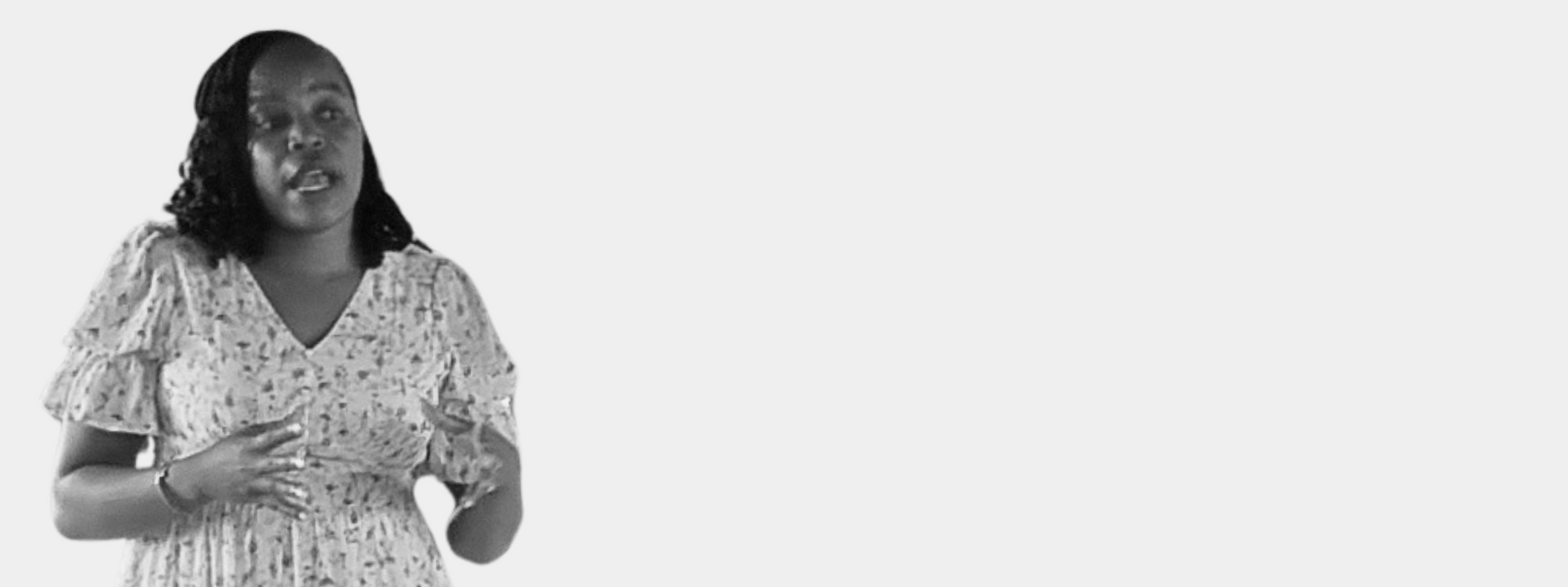
- Published On
- 24 Apr 2025
- Published By
- MenEngage Alliance
- Reading Time
- 6 minutes
- Resource Type
- Meet A Member
‘Meet a Member’ is a regular feature in the global MenEngage Alliance newsletter. In this edition, we hear from Edwick Madzimure (she/her), Founding Director at WILPF Zimbabwe, member of MenEngage Zimbabwe, and Steering Committee member of MenEngage Africa.
Tell us a bit about yourself and your journey into this work.
The foundation of my passion for gender equality work has been shaped by my personal experiences. Growing up in rural areas and mining communities, I witnessed firsthand the deeply rooted gender inequalities that limited opportunities for women and girls. These environments, often marked by poverty, violence, and harmful social norms, shaped my understanding of the urgent need to create communities where women and girls can truly thrive.
Over time, I came to realize that while empowering women and girls is essential, it is not enough on its own to achieve meaningful and lasting change. True transformation requires engaging men and boys in the conversation, challenging harmful masculinities, shifting attitudes, and fostering shared responsibility in advancing gender justice. This understanding led me to focus on gender-transformative programmes that address the root causes of inequality by working with all members of the community.
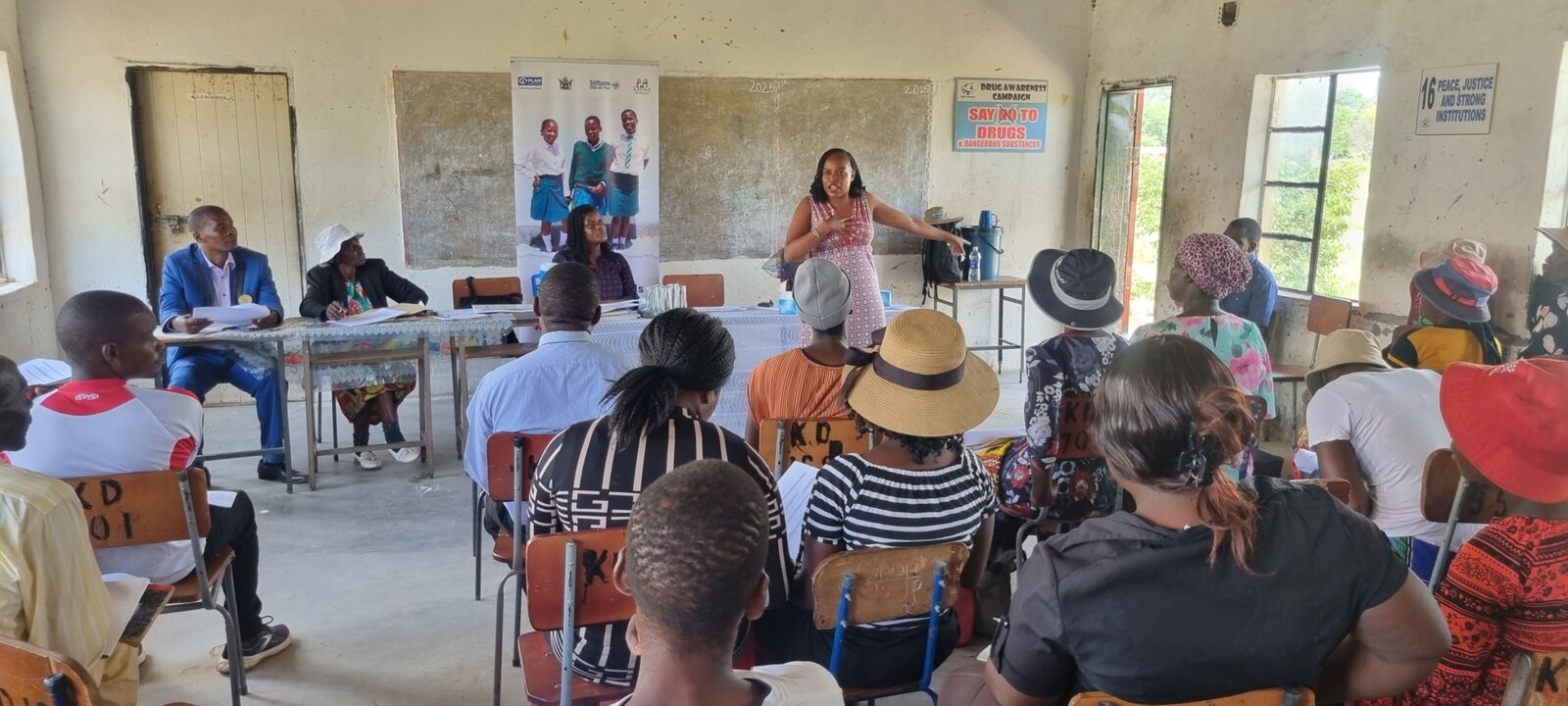
What does your organisation work on?
WILPF Zimbabwe is a national chapter of Women’s International League for Peace and Freedom. As WILPF Zimbabwe, we are a feminist peacebuilding organisation working to promote gender equality, peace, and social justice. Our work involves actively engaging men and boys in mining communities to promote positive masculinities and challenge harmful gender norms. These communities are often characterized by high levels of violence, abuse, and discrimination against women and girls. Additionally, poverty and inadequate infrastructure contribute to elevated school dropout rates, particularly among girls.
Recently, we held MenCare campaign sessions in Tigerreef engaging 72 community members in dialogues on positive fatherhood, health-seeking behaviors, and violence prevention. The sessions supported the community in addressing issues such as drug abuse, sexual health, and access to services like treatment for sexually transmitted infections and cervical cancer screenings.
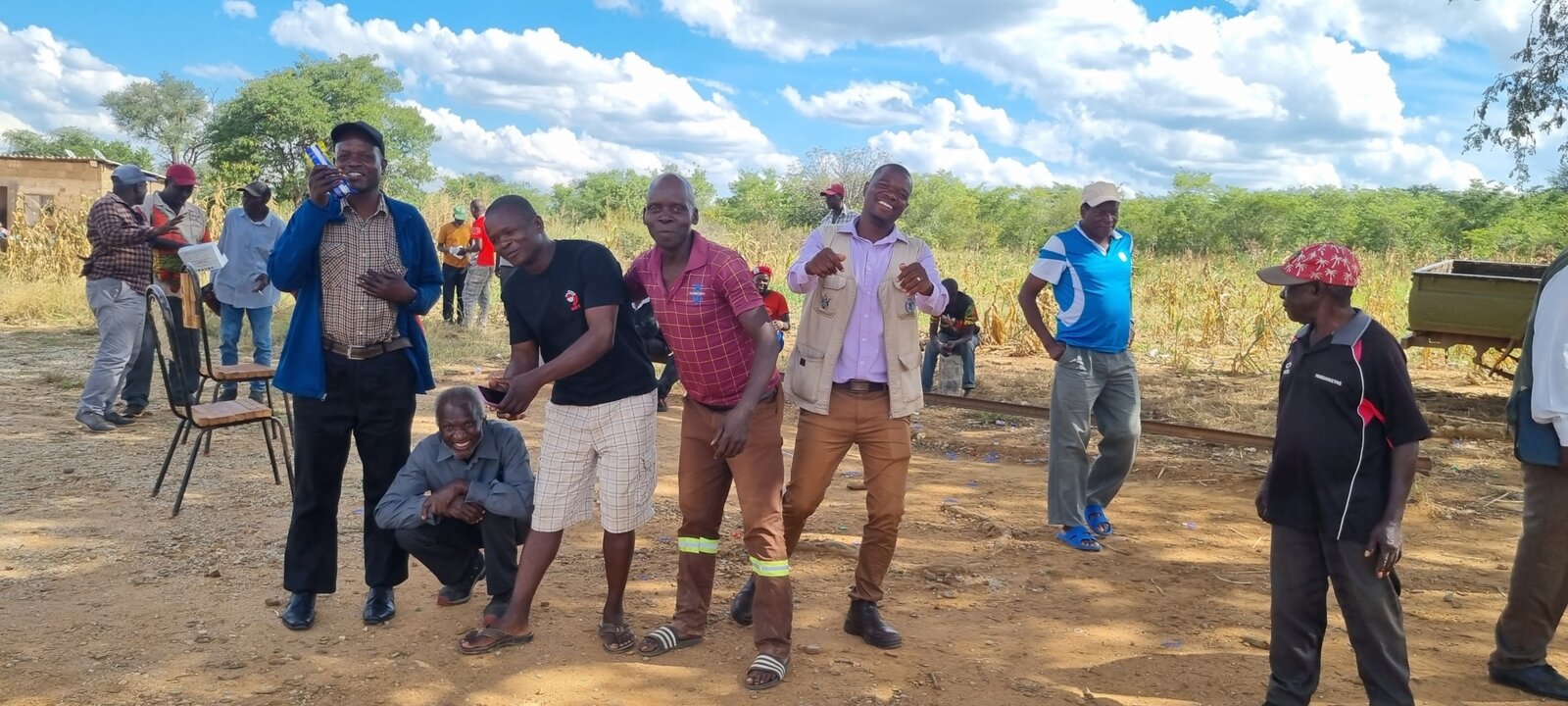
Where do you draw strength from in your activism?
I am inspired by the resilience of women, girls, and marginalized communities who continue to push back against systems of oppression, often with very little support, and still manage to lead with strength and compassion. Their stories are a constant reminder that justice isn’t a theory; it’s lived, it’s fought for, and it’s urgently needed.
What keeps you motivated in this work?
I am motivated by the transformations I witness in community dialogues where men and boys begin to reflect on their roles, unlearn harmful behaviors, and choose to show up as allies. Those moments of awakening when someone chooses empathy over ego, accountability over silence, are powerful. They’re reminders that engaging men is not about blame, but about responsibility and possibility.
I’ve learned that small shifts matter. Whether it’s a man taking the first step towards questioning harmful norms, a woman speaking up in a community meeting for the first time, or a young person seeing new possibilities for themselves – these moments are the seeds of transformation.
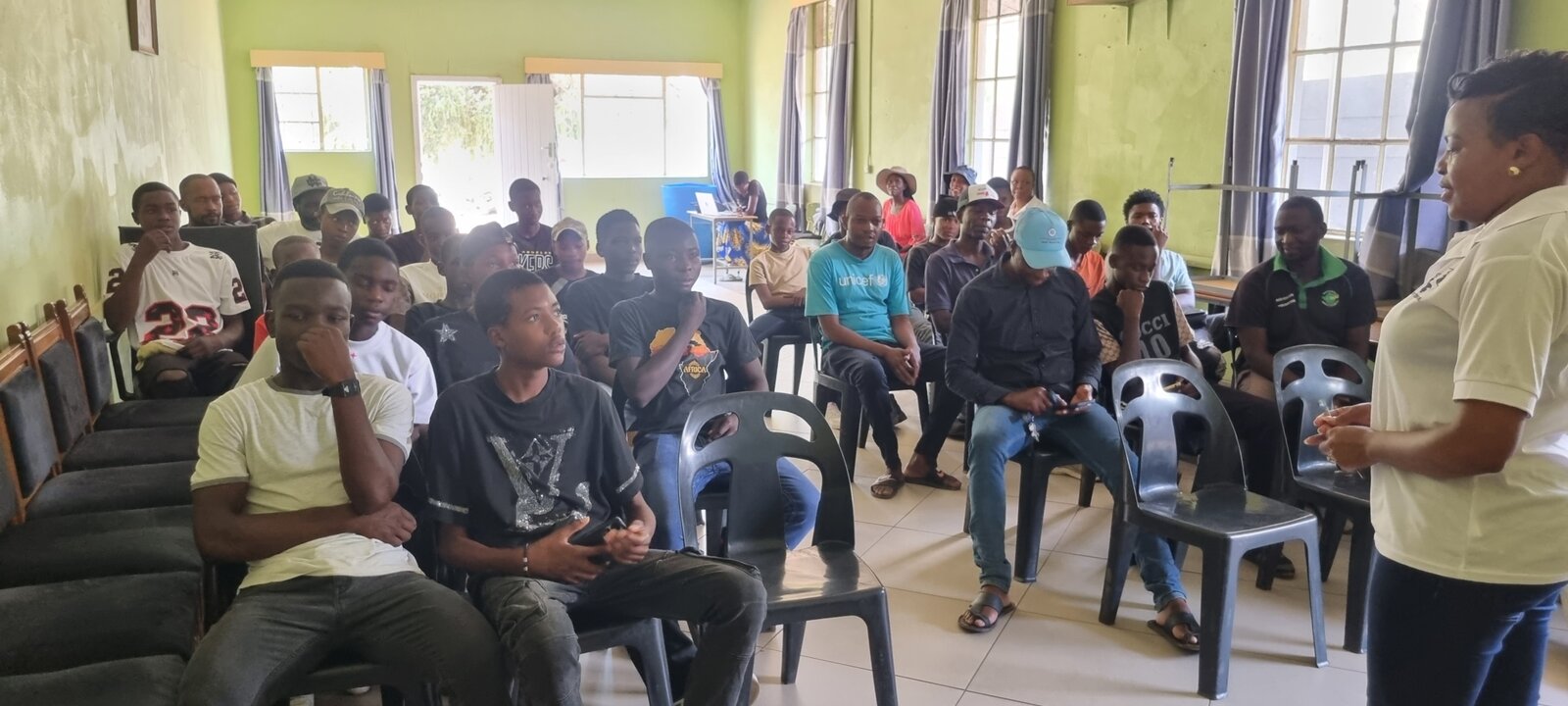
What are you thinking about these days in relation to gender transformative work with men and boys?
I’ve been thinking about the depth of gender transformative work with men and boys and how crucial it is that we move beyond surface-level engagement. It’s not enough to raise awareness, we have to support real shifts in identity, behavior, and power. And that takes time, trust, and a willingness to sit with discomfort.
Another thing I’m holding is the need to make this work locally rooted and culturally relevant. Gender norms don’t exist in a vacuum, they’re shaped by race, class, religion, colonial histories, and local power dynamics. So the strategies we use have to be grounded in context and led by communities themselves.
And finally, I’m thinking about care. In a world where patriarchy teaches boys to disconnect from emotion and where many men carry trauma they’ve never been taught to name, how do we integrate healing into this work? How do we hold both challenge and compassion, calling men in, while still calling out the harm?
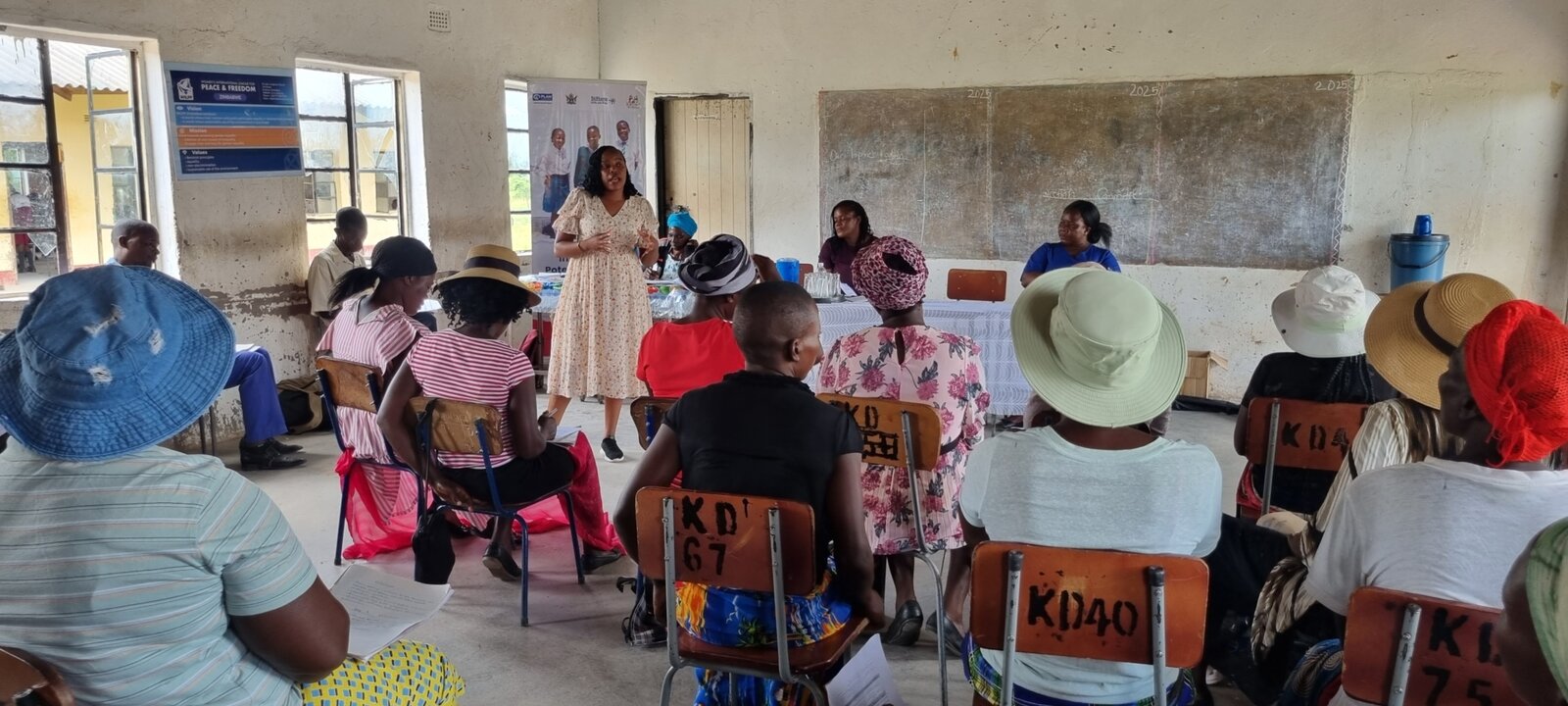
How has being part of the MenEngage Alliance supported your work?
Being part of the MenEngage Alliance has had a meaningful impact on our work at WILPF Zimbabwe, particularly by creating opportunities for joint advocacy and collaboration with like-minded organizations at the national level. One practical example is our collective engagement with the government, where we advocated for the development of a national Men Engagement Strategy. Through the alliance, we were able to present a unified voice and make a strong, coordinated proposal.
This kind of collaboration is powerful. By working together, we’re able to amplify our voices, present shared demands, and increase our influence in policy spaces that are often difficult to access individually. It also enables us to use available resources more effectively: we have been co-hosting events, sharing expertise, or strengthening outreach into different communities.
The alliance creates a space for learning and solidarity, where we can exchange strategies, build collective knowledge, and support one another in pushing for a gender-just and peaceful society. For us, it’s not just a network – it’s a platform for action and impact.
What keeps you hopeful?
What gives me hope is the growing awareness and movement across generations and borders: activists, educators, community workers, and everyday people all committed to dismantling patriarchy and building something better in its place. It’s slow, it’s hard, and sometimes it feels like we’re going against the tide. But every small shift in consciousness, every community that starts having different conversations, every policy that centers care and equity, makes a difference.
Are there any resources you have created or helped develop that you’d like to share with others in the field?
Yes — a few. Our recent report, Confronting militarised masculinities, explores the root causes and manifestations of violent masculinities and gender inequalities in the gold production sector and offers recommendations for how the mining sector in Zimbabwe can be transformed through a feminist peace lens. I have also produced a research report on “How Militarism Has Impoverished the African Continent, Placing it at the Epicentre of the Climate Crisis” which explores the myriad ways in which conflict, militarism, and the climate crisis are intertwined on the African continent.
Can you share something that’s inspired or moved you lately?
One piece of work that I keep coming back to is “The Man Box” research and campaign by Equimundo and partners. Not just for the data it revealed, but for how it gave language to the invisible pressures boys and men live under and how those pressures harm everyone, including themselves. It shifted the way we talk about masculinities in a way that’s accessible, emotional, and globally relevant.
What’s been captivating my imagination lately is the power of storytelling to open up new ways of seeing gender, power, and transformation. There’s something incredibly moving about how creative expression can cut through defensiveness and speak to people’s hearts in ways that statistics or policies sometimes can’t.
I’ve been deeply moved by the poetry of people like Alok Vaid-Menon. Their work challenges rigid gender binaries and invites a more expansive, humanizing understanding of identity and embodiment. The way they use language is raw, honest, tender — it stays with you. It reminds me that gender transformative work isn’t just about changing behaviors, it’s about expanding imagination, softening hearts, and nurturing collective freedom.
Any advice for others working to engage men and boys in gender justice?
I deeply believe that change is possible and that it begins with relationships, with listening, and with courageous conversations. Working in mining communities and rural areas has taught me that sustainable change doesn’t come from imposing solutions, but from building trust, relationships, and understanding the lived realities of people on the ground. If there’s one piece of advice I would offer to others doing this work, it’s this: start by listening deeply, respectfully, and without assumptions.
Feminist peace and gender justice work isn’t just about policy or theory – it’s about people’s everyday lives, and often, their survival. In these communities, issues of gender inequality are deeply intertwined with economic hardship, environmental degradation, and systemic neglect. To make a real impact, our work has to be intersectional, locally rooted, and grounded in the voices of those most affected.
And finally, don’t do this work alone. Find your allies. Working in feminist peacebuilding and engaging men and boys can be isolating and even exhausting at times, especially when challenging deep-rooted norms in rural and extractive contexts. But solidarity is powerful. Collaborating with others, strengthens our impact and sustains us.
To find out more about WILPF Zimbabwe’s work follow their Facebook account. You can reach out to Edwick on LinkedIn.

